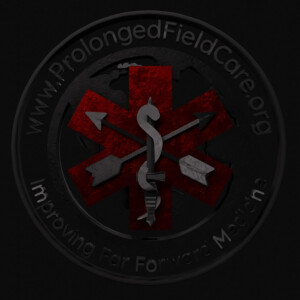
Prolonged Field Care Podcast 52: Walking The Fence Of Evidence, Environment, And Experience
 2021-07-12
2021-07-12
After a few discussions with JJ who has also appeared in several Element Rescue podcasts, Doug and Dennis talk about using evidence based medicine whenever possible and what to do when no prospective randomized controlled trials exist for a specific problem you face. What do you do when no evidence exists for a specific problem you face? With such a wide scope of practice while deployed and a lack of protocols SF medics are often faced with unique situations in which they must actually weigh the evidence, best practice, guidelines and expert consensus against the given situation. This is a great responsibility not entrusted to many other combat arms troops. In order to weigh the evidence you must first be aware it exists and how to interpret what you are reading. This will help get you on the right path in making informed decisions.
Check out the Discussion: https://oembed.libsyn.com/embed?item_id=10109669
Prolonged Prone Positioning Article NEJM 2013
Protocols and algorithms likely drive the majority of decisions a medic will ever make. If you find yourself in a situation, such as a prolonged field care situation, that outlasts all of those you should know some of the current best practices and data to back up your decisions you may be forced to make. Dogma is believing something to be true without knowing if it actually is, or why. Don’t rely on dogma, question things and have your own opinions. Know why you believe what you believe. When you make a telemedicine consult call you should have a fairly good idea of the decision you are leaning toward and why. You will sound much more like the medical professional you claim to be and less like the knuckle dragger they may be expecting. Medicine is a separate language and you are expected to be somewhat fluent. Data and research are intellectual and professional currency and which can add to your credibility. Read an article, understand who the authors are, their specialty, where they work and who funded or sponsored it as well as the references at the end. You will run across words you aren’t familiar with. Put them in the Google machine and expand your medical vocabulary. You may even want to read those references and the references to those in order to really dig deeper. (Three deep, right Scott?) Podcasts are a great way to hear opinions on some of these studies and how others have incorporated them into their practice. Podcasts and blogs (even this one) are not journal articles and studies. They are meant to raise discussions and spark debate and make you aware of new techniques or practices. If a study is mentioned find the article and read it yourself. Does it apply to your environment, experience and training? Don’t be the guy quoting a podcast or Facebook post in a scholarly discussion, at that point it will just be entertainment, for the other guy. Know where it originated.
More Episodes
Create your
podcast in
minutes
- Full-featured podcast site
- Unlimited storage and bandwidth
- Comprehensive podcast stats
- Distribute to Apple Podcasts, Spotify, and more
- Make money with your podcast
It is Free
- Privacy Policy
- Cookie Policy
- Terms of Use
- Consent Preferences
- Copyright © 2015-2024 Podbean.com





